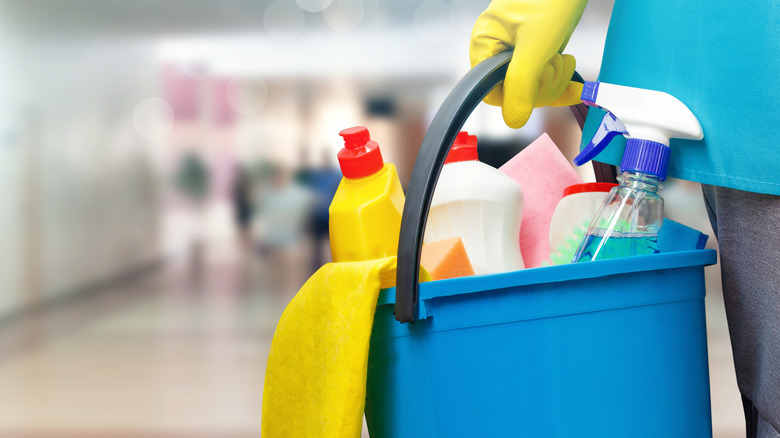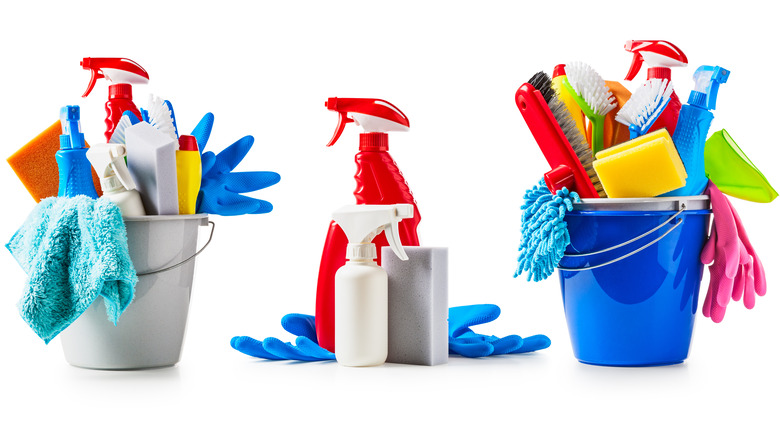The Sneaky Truth You Need To Know Before Using Natural Cleaning Products
In a world where having an arsenal of cleaning products feels like a necessity, you want to know that you are buying products that are both safe and effective when it comes to fighting germs. As online grocery shopping becomes more popular, the number of "safe" and "green" products on the market have multiplied. But exactly how safe are these alternative cleaning supplies?
According to Force of Nature, there are many products out there with claims of being "natural" with no such facts to back it up. When we see something labeled "natural," our immediate thought is that a product is not toxic or chemical free. However, this is not the case. Some of the most popular brands like Seventh Generation, Method, Mrs. Meyers, Honest Company, and Green Works are not toxic free at all. In fact, they contain toxic chemicals that can trigger allergic reactions on the skin and also some respiratory issues.
That's because companies are not required to list every ingredient found in their products, per Force of Nature. Buzz words like "natural" can refer to a multitude of different fragrances, dyes, or preservatives added to products that aren't always safe. There aren't government regulations on terms found on labels like "natural" or "nontoxic," according to WebMD. A company claiming to be green doesn't make their products unequivocally safe. Green is vague enough that it can mean safe for the environment by being produced with less water; it does not equate to harmless.
Do natural cleaning products actually clean surfaces?
Before you get out the sprays and wipe down your counter, make sure your natural disinfectants are actually killing the bacteria and viruses they claim to kill. While the labels say they do, it's important to disinfect surfaces properly. When it comes to hard surfaces, these natural disinfecting products will kill 99.999% of germs, but they don't work as fast as the chemical disinfectants (via Good Housekeeping). If you're cleaning a non-porous surface such as glass, plastics, or metals, the surface must stay wet with the disinfectant in order to be most effective. Immediately drying the surface off, ensure that many of those germs stick around.
Sanitizing your surfaces isn't the same thing as disinfecting. According to Novant Health, disinfecting occurs when chemicals kill germs. Sanitizing removes or lowers the number of germs, but doesn't mean it eradicates all germs. It's important to make sure that your cleaning products have an EPA registration since only those products can claim to kill germs, per Good Housekeeping.
Still want to use natural cleaners, but don't trust the ones for purchase? It's easy to DIY with cleaning ingredients you probably already have in your pantry or medicine cabinet. Better Homes & Gardens recommends stocking up on products like baking soda, distilled white vinegar, hydrogen peroxide, essential oils, and castile soap. However, keep in mind these products are only good for cleaning grease or spills. You still may want to purchase a disinfectant for germs.

